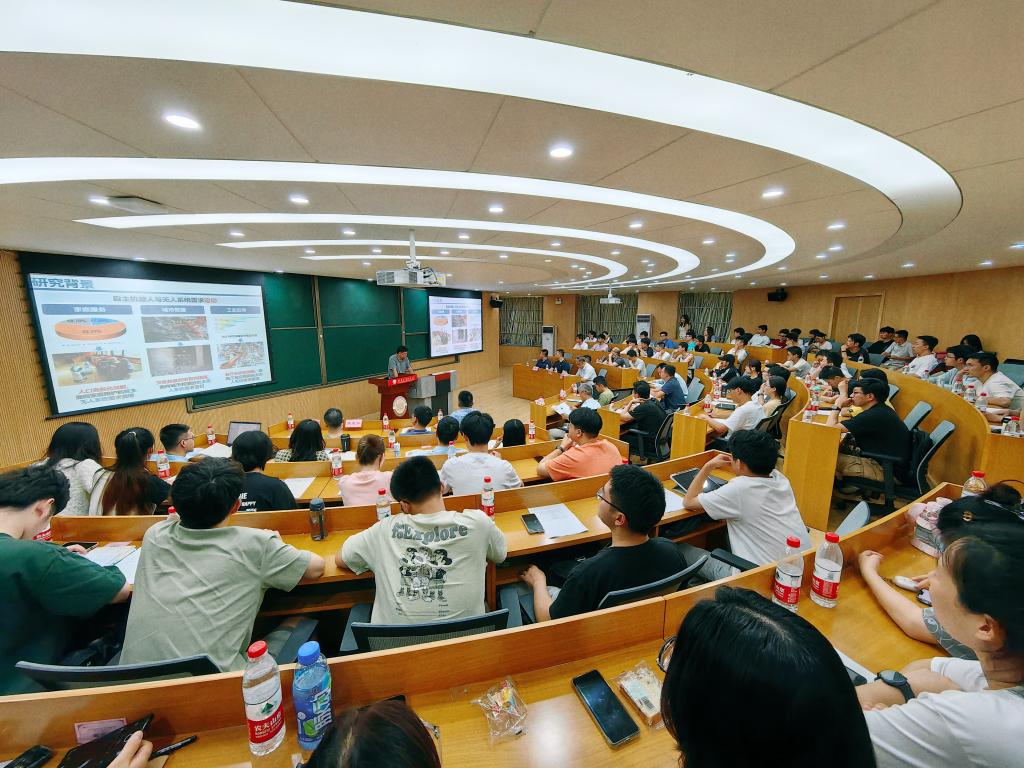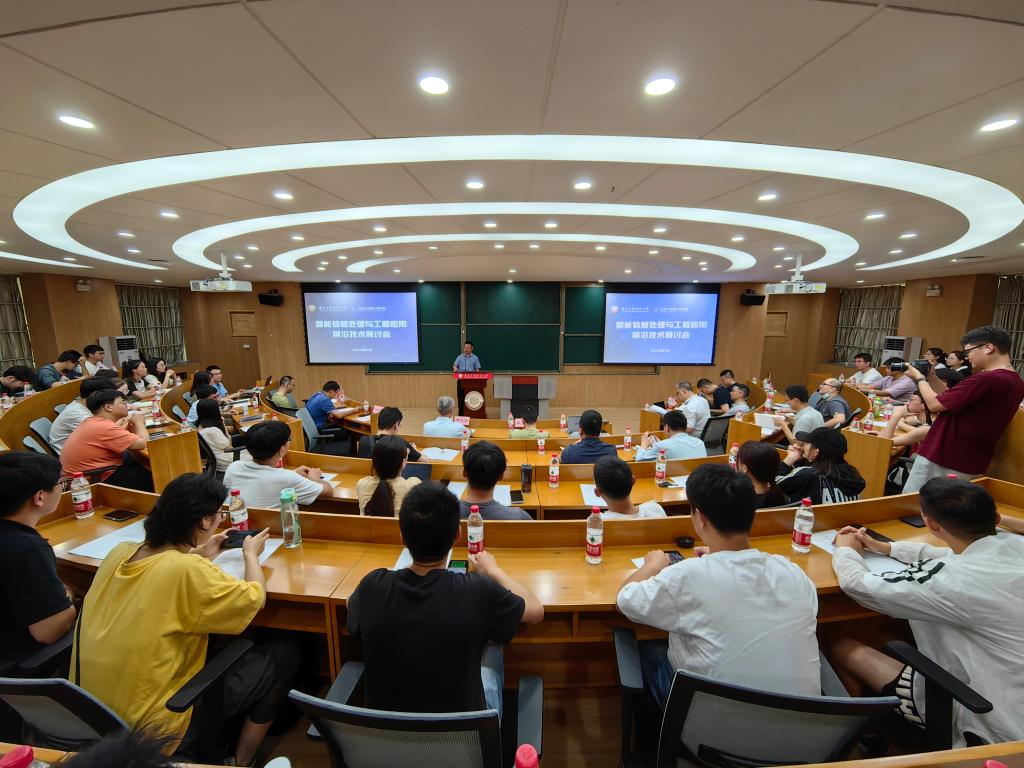On August 5th to 6th, the seminar on 'Advanced Technologies in Intelligent Information Processing and Engineering Applications,' hosted by the College of Control and Information Engineering, took place at the Caotang Campus. The event was attended by Professor Ma Zongfang, Dean of the College of Control and Information Engineering, Vice Dean Li Zhijie, as well as some faculty members and graduate students. The seminar was co-chaired by our university's 'Yanta Scholar' Distinguished Professor, National Leading Talent, and Professor Huang Qinghua from Northwestern Polytechnical University, along with Associate Professor Wang Binglu from the College of Control and Information Engineering.

Dean Ma Zongfang introduced the basic information about the university and the college, expressing sincere gratitude to all the experts who came to the university during the hot summer break to share their knowledge. He pointed out that in the face of the new round of technological revolution and industrial transformation, the College of Control and Information Engineering closely aligns with the university's "11445" development plan and implements the university's "Information Discipline Rising Plan" and the "Intelligence+" strategic deployment. He hoped that the attending experts, based on their research expertise, would provide guidance and assistance in the cross-integration of cutting-edge technologies in intelligent information processing and engineering applications with the university's core disciplines. He deeply anticipated further collaboration in the future to enhance the research and teaching capabilities of the faculty, improve the quality of talent development, and contribute to the intelligent transformation and upgrading of the university's advantageous disciplines.

On August 5th, Professor Li Zhijun, a chair professor at the University of Science and Technology of China, a recipient of the National Natural Science Foundation of China's Distinguished Young Scholar Award, and the Chief Scientist of the National Key Research and Development Program, delivered a presentation on "Autonomous Robots and Unmanned Systems." Following that, Professor Gao Feng, from Tianjin University and the Director of the Key Laboratory of Biomedical Detection Technology and Instruments in Tianjin, gave a talk on "Organic Optical Imaging: Technological Developments and Biomedical Applications.” Later in the session, Dr. Zhang Shaoting, Vice President and Deputy Dean of Research Institute at SenseTime, and a recipient of the National Thousand Talents Program, spoke about "Basic Models in Medical Scenarios." Professor Zhang Dingwen from the School of Automation at Northwestern Polytechnical University discussed "Preliminary Exploration of AI Cross-Medicine," and Professor Wang Wei, Chief Physician and Deputy Director of the Ultrasound Medicine Department at the First Affiliated Hospital of Sun Yat-sen University, talked about "Intelligent Precision Diagnosis in Ultrasound." Lastly, Liu Feng, a Senior Economist at the China State Construction Engineering Corporation's Northwest Regional Headquarters and a part-time professor at Xi'an Jiaotong University, presented on "Interpreting Urban Renewal and New Urbanization.

On the morning of August 6th, a series of presentations were given by various speakers:
Dr. Qiao Chang, a postdoctoral researcher from the Department of Automation at Tsinghua University, spoke on "Research and Development of Intelligent Super-Resolution Live Cell Imaging Technology."
Dr. Su Xiaoyu, a postdoctoral researcher from the Micro-Machine Intelligence Laboratory at Peking University's School of Engineering, presented on "Intelligent Micro-Machine Systems for Precision Medicine."
Dr. Yang Yue, a postdoctoral researcher from the Chinese People's Liberation Army General Hospital, gave a talk on "Intelligent Medical Imaging for Early Diagnosis."
Lecturer Yi Liqun from the Department of Russian Language at Peking University's School of Foreign Languages discussed "Applications and Challenges of Intelligent Information Processing in Language Testing."

This seminar and exchange event introduced cutting-edge technologies in intelligent information processing and engineering applications, explored future development paths and frontiers, broadened the research horizons of faculty and students, and played a role in further clarifying the direction of the discipline. The College of Control and Information Engineering will take the mission and responsibility of realizing the university's "Information Discipline Rising Plan." It will fully absorb the valuable opinions and suggestions of experts, further refine the characteristics of the discipline, promote interdisciplinary integration, and enhance the overall development of the discipline. This will contribute to supporting the university's "Intelligence+" transformation strategy.
